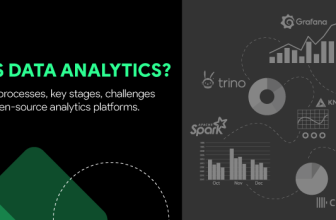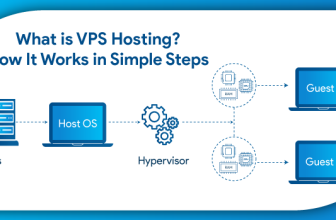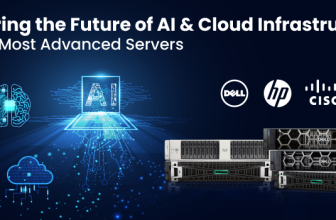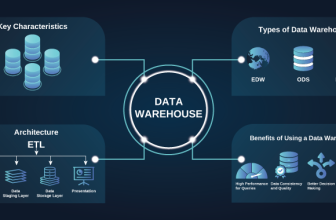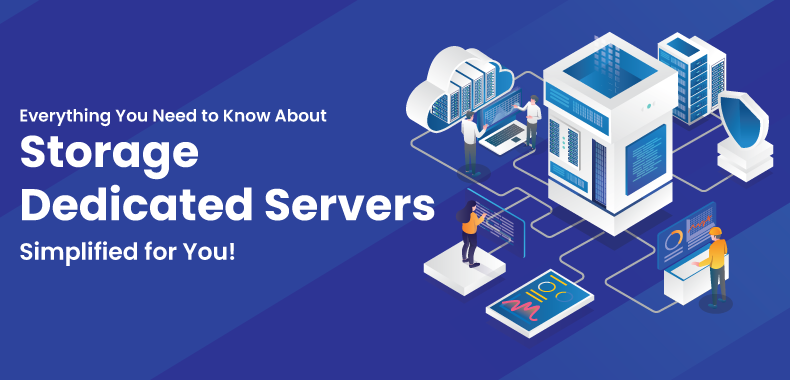
What Is a Dedicated Storage Server?
A dedicated storage server is a physical server in a data center assigned to a single user, application, or business, allowing them to manage and control the server to meet specific needs. The dedicated storage servers, with the advantages of exclusive storage resources and superior performance, offer consolidated storage solutions with end-to-end customization.
Unlike virtual storage servers, where multiple clients share common resources, a dedicated storage server exclusively allocates its full storage, memory, and compute power to one customer. It features optimized, high-capacity storage built on large disk space, super scalability, and redundancy, guaranteeing the right balance of performance and cost for data-critical tasks.
Typical customers of dedicated storage servers include small to medium-sized businesses (SMBs), start-ups, and enterprises with critical and sensitive data storage and backup requirements, ranging from operating system (OS) data to configuration files, product inventory, project data, VM disks, archives, media, surveillance footage, applications, databases, and more.
Storage dedicated hosting from a reliable provider shields you against hardware failures, security breaches, existing and future threats while extending you the benefit of the latest hardware and software, custom plans, seamless scalability or reversibility, and more at a fraction of the cost. The hosting provider maintains and monitors the storage server resources, security, access, network, software updates, off-shore backup, and other services, making managed storage servers a practical option for all kinds of businesses.
How does a storage-dedicated server work?
Empowered by software-defined storage solutions or file systems such as Red Hat Ceph, Nutanix Cloud, StarWind Virtual SAN, VMware vSAN, Dell EMC ScaleIO, DataCore, etc., or ZFS, XFS, EXT4, Btrfs, GlusterFS, CephFS, and so on, a storage-dedicated server pilots several head-turning pay-offs, including:
- Higher data storage efficiency with data compression, deduplication, and thin provisioning
- Improved data integrity and reliability with checksumming and self-healing
- Advanced redundancy and fault tolerance via RAID, Snapshots, or Cloning
- Scalability with large disk space and distributed storage support
- Performance optimization with Sequential & Parallel I/O and Tiered Storage
- Flexibility & manageability with Snapshots, Clones, Subvolumes, and Pooled Storage
- Security Features with data encryption, Access Control & Quotas
Once you subscribe to a storage-dedicated server from a reliable hosting provider, you are in control of all the server’s resources, including CPUs, memory, storage, security, network, and bandwidth. The majority of dedicated hosting services assure specific uptime, standard practices, and technical support. Additionally, you can install software, choose the hardware configuration and OS, manage server settings, user accounts, and perform administrative tasks with full root access. The dedicated resources allow you to virtualize and run multiple instances with existing per-socket, per-VM, or per-core licenses.
Types of Storage Dedicated Servers
Categorized according to their architecture and features, the storage dedicated servers are of five types, proven for distinct use cases and advantages. You can build your storage based on SAS, SSD, and NVMe disks irrespective of the type you choose. Each of the storage types includes different advantages, as follows.
- NAS (Network Attached Storage) Server:
A NAS server is a file-dedicated storage platform that enables heterogeneous users and devices to access and manage data from a centralized source. It also facilitates simultaneous data access from users across different time zones via a LAN. Businesses deploying NAS mostly choose it as a foundation for organisational or private cloud environments with high-end data storage, backup, and archiving requirements.
- SAN (Storage Area Network) Server:
A SAN server functions as a shared storage pool accessible by multiple servers or users over a localized network. Each server or user can access storage on the SAN directly as if it were local disks, facilitating inter-organizational data communication and storage at the fastest speeds. SAN is usually built over an independent, high-speed network that interconnects storage arrays and servers by HBAs, cables, and switches.
- NVMe Storage Server:
An NVMe storage server is a storage structure centered on the latest Solid State Drives working on the NVMe protocol and capable of delivering the highest data throughput and faster response times for enterprise workloads. Perfect for resource-intensive apps and businesses with a wide user base, the NVMe storage servers are popular for wide-bandwidth, low-latency user experience.
- RAID Storage Dedicated Server:
A RAID storage dedicated server utilizes a technology based on a redundant array of independent disks, also called RAID, which combines different storage drives to form a single logical unit to boost data storage and performance. This offers benefits such as protection against unrecoverable sector read errors and drive failures, enhanced storage capacity, data access speed, reliability, and redundancy.
- Hybrid Storage Server (HDD+SSD):
A hybrid storage server holds out the best data storage features, deriving its strengths from a blend of flash-based SSDs and mechanical HDDs to deliver better cost–performance. Its capabilities and affordability make it a handy choice for small and medium businesses looking for better data access rates and latency without compromising compatibility, security, and data portability.
Benefits of Dedicated Storage Servers
- High Storage Capacity:
Growing businesses these days often come across instant and rapid changes in their opportunities and challenges, accelerated by evolving user choices and preferences. As their operations expand and become more complex, the need for flexible and robust storage becomes critical. That is where a dedicated storage solution comes in handy with a high-performing storage capacity, configurable and expandable with a combination of SAS/SATA/NVMe SSDs or SAS/SATA HDDs.
- Enhanced Data Security:
In the era of upsurging security concerns and threats, a storage-dedicated server ensures protection against unauthorized access, data breaches, corruption, and compromise with isolated resources, data encryption, and cyber-grade security. Moreover, most hosting providers also extend firewall protection, 24/7 monitoring, regular backups, and immediate data recovery in case of hardware failures or data loss.
- Dedicated Resources:
Dedicated resources, an obvious asset of a storage-dedicated server, allow you to run your applications, websites, or operations at full throttle. Reinforced by top-notch CPUs, GPUs, large memory, and SSD storage, your business can fetch predictable and consistent performance, improved continuity, and reliability even during traffic surges.
- Full Administrative Control:
Full administrative control in dedicated hosting is a root-level log-on access that enables you to take full control of your storage server. As a root administrator, you have full command to modify or rewrite every command and directory file. Moreover, the administrative control empowers you to restrict and block other users, configure your server and software, install third-party applications, manage domain names, email accounts, and more.
How to choose the right storage dedicated server?
The toughest challenge lies in deciding the configuration of your dedicated storage server with a broad range of specs on offer. Some hosting providers play a proactive role in customizing the storage server for your business; however, the following hints may help you make an informed decision.
Assess Your Storage Requirements:
It is best to begin by evaluating your storage requirements based on the following factors:
- Applications, tools, and platforms your business uses
- Type and volume of data to be managed
- Growing data demands
- Scalability of hardware
- Data access rate and performance
- Budget limitations
- Redundancy and security
- Compatibility and integration with existing infrastructure and platforms
Lastly, an understanding of the available storage technologies may aid you in building the right storage solution.
- Choose the Appropriate Storage Technology:
After assessing your storage requirements, you have to choose a storage technology that best matches your business demands. All the storage server options – NAS, SAN, NVMe, RAID, and Hybrid – have distinct benefits. NAS-based storage allows you to access data from multiple remote locations via Ethernet at an affordable cost. In contrast, SAN storage is a centralized, high-speed storage suitable for large databases and virtualized environments. NVMe storage is ideal for parallel operations and multi-tasking. RAID-powered storage server offers data performance, redundancy, and increased capacity. A hybrid storage server introduces benefits such as increased application performance, flexible data management, and reduced storage costs.
- Evaluate RAID Configurations:
The final step is evaluating and choosing a RAID configuration. Between the hardware and software RAID arrays, RAID hardware is more expensive but equally performing, whereas RAID software unburdens you from the complexity of using and managing more hardware, but consumes the processing power of the server. Among the RAID levels available, notably 0, 1, 5, 6, and 10, each carries a unique use case as follows: striping, mirroring, striping & distributed Parity, and mirroring & striping.



